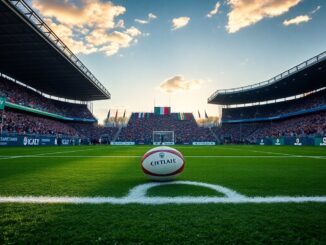Diogo Jota's untimely death leaves a void in football and a reminder of life's fragility.

Topics covered
The heartbreaking news of Diogo Jota’s death, alongside his brother Andre Silva, in a car crash in Zamora, Spain, serves as a poignant reminder of just how swiftly life can change. Just weeks after celebrating his wedding, Jota’s tragic passing at the young age of 28 has sent shockwaves through the football community, prompting us all to reflect on the fragility of life and the profound impact of sudden loss.
How often do we take the moments we cherish for granted?
Understanding the Impact of Tragedy
Diogo Jota, a standout player for Liverpool FC and the Portuguese national team, was involved in a fatal accident that claimed not only his life but also that of his brother.
The incident unfolded in the early hours of Thursday morning while they were traveling along the A52 road. Reports indicate their vehicle veered off the road and tragically caught fire, with the Spanish Guardia Civil confirming the heartbreaking news of their deaths.
It’s a stark reminder that life is unpredictable—something we often forget in our busy lives.
This tragedy raises uncomfortable questions about safety and the unpredictability we face every day. In a world that often views athletes as invincible, such events remind us of their humanity. Jota’s passing, just weeks after his wedding, highlights the unpredictability of life and the necessity of cherishing every moment. Are we doing enough to appreciate our own lives and those around us?
Analyzing the Response from the Football Community
The outpouring of grief from the football community has been overwhelming. The Portuguese Football Federation expressed its devastation, not only recognizing Jota’s remarkable skills on the pitch but also his character off it. They referred to the losses as irreparable, a sentiment echoed by Liverpool FC, which emphasized its support for Jota’s family during this unimaginably difficult time.
Tributes have flooded in from fans, teammates, and fellow players alike, all acknowledging the significant impact Jota had on the sport. His talent on the field was matched only by his infectious joy for life, making him a beloved figure in football. The emotional responses from fans and clubs reflect the profound effect athletes can have, transcending the game itself. Isn’t it incredible how sports can bring people together, even in the toughest times?
Lessons Learned from This Tragedy
While the loss of Diogo Jota and his brother is heart-wrenching, it also serves as a catalyst for reflection on several key lessons. First and foremost, it underscores the critical importance of safety—not just for athletes but for everyone. Road safety regulations, awareness campaigns, and personal responsibility should be at the forefront of conversations about athlete welfare.
Moreover, this tragedy highlights the necessity of robust support systems within sports organizations. Athletes often face immense pressure, and the emotional toll of such losses can be immense. By creating environments that prioritize mental health, we can help mitigate the risks associated with the challenges athletes confront both on and off the field.
Lastly, we must not forget the fragility of life. This tragedy teaches us to appreciate every moment with our loved ones and to recognize the significance of community support during difficult times. As the football world mourns, it reminds us that we are all part of a larger network, and supporting one another is crucial. How can we better support those around us in times of need?
Actionable Takeaways for the Football Community
In light of this tragedy, the football community must take actionable steps. First on the list is enhancing safety protocols for all athletes, including travel guidelines. Implementing rigorous safety measures is essential to ensure secure and monitored travel arrangements. How can we create a safer environment for our athletes?
Second, fostering a culture of open communication about mental health can significantly benefit players’ well-being. Regular check-ins and access to mental health resources should be standard practice to help athletes navigate personal challenges and emotional distress. Are we doing enough to support the mental health of our athletes?
Finally, the football community should unite to honor the legacies of individuals like Jota and his brother. Creating memorials or initiatives that reflect their contributions to the sport and society not only commemorates their memory but also inspires future generations to strive for greatness while remaining grounded in humility and compassion. What kind of legacy do we want to leave for those who come after us?




